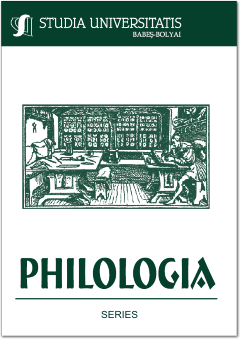BEING ON GUARD VS BEING IN BLINKERS: PERSPECTIVES ON THE INTERCULTURAL COMPETENCE WITH FOREIGN MEDICAL STUDENTS IN ROMANIA. ASPECTS OF EVALUATION
BEING ON GUARD VS BEING IN BLINKERS: PERSPECTIVES ON THE INTERCULTURAL COMPETENCE WITH FOREIGN MEDICAL STUDENTS IN ROMANIA. ASPECTS OF EVALUATION
Author(s): Anca UrsaSubject(s): Language and Literature Studies
Published by: Studia Universitatis Babes-Bolyai
Keywords: intercultural competence; evaluation; attitudes; abilities; integrated activities.
Summary/Abstract: Being on guard vs being in blinkers: perspectives on the intercultural competence with foreign medical students in Romania. Aspects of evaluation. The development of intercultural competence (IC) in the 21st century is a clear necessity, and not a socio-political trend. If in the United States circumstances have imposed for decades the establishment of a new discipline, Europe sees itself now confronted with the emergency of establishing intercultural teaching principles, in the face of massive immigration and an explosion in educational and occupational mobility. If we relate to the second category, foreign medical students in Romania respond to a double wager of understanding Romanians: the street and the hospital medium. From a pedagogical perspective, the work group is homogeneous, so that teaching transcultural knowledge, attitudes and abilities does not raise major problems. However, evaluation represents a challenge: it is not a question of knowledge, where there already are multiple instruments that have been verified, but about attitudes and abilities, which are monitored in time and in specific contexts, and the RFL teacher rarely benefits from such circumstances. In the present study, „ Being on Guard Vs Being in Blinkers: Perspectives on the Intercultural Competence with Foreign Medical Students in Romania. Aspects Of Evaluation”, we try to build some evaluation activities and exercises that are specific for each component of the intercultural competence, and which are adapted to the students’ curriculum and schedule.
Journal: Studia Universitatis Babes-Bolyai - Philologia
- Issue Year: 62/2017
- Issue No: 2
- Page Range: 183-196
- Page Count: 14
- Language: English

